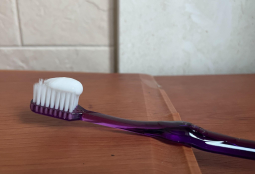Oral diseases are a major public health issue for countries and populations worldwide, even though its severity is not recognized much. According to the Global Oral Health Report, 3.5 billion people worldwide in 2019 were affected by oral diseases, making them the most widespread conditions among humanity. Three out of four people in middle income countries are affected by oral conditions (“Global oral health status report: towards universal health coverage for oral health by 2030” 7-8).
Oral diseases can cause serious impacts on overall health and recent studies underline the association between poor oral health and chronic diseases such as diabetes, cardiovascular, cerebrovascular and chronic pulmonary disease. In addition, poor oral health can impact one’s social and self-esteem, leading to social isolation. (“Global oral health status report: towards universal health coverage for oral health by 2030” 20-21). Thus, maintaining good oral health is vital in maintaining general health.
There are several steps that should be taken to maintain good oral health. Your teeth need to be brushed at least twice a day: in the morning and before bedtime. If possible, they should be brushed after each meal. While brushing, it is recommended to use fluoride toothpaste and a soft-bristle toothbrush. In addition, the toothbrush should be replaced every three to four months. It is also crucial to brush the tongue and the roof of the mouth. However, brushing should be done smoothly to avoid damages in the gums and teeth enamel.
It is also recommended to rinse with mouthwash, which helps reduce bacteria and strengthen the teeth. Similarly, daily flossing is significant to remove plaque and eliminate food remains in the gaps between teeth along the gumline. Additionally, a healthy diet is essential to reduce sugary and acidic food or drinks as it can lead to tooth decay. The diet should be rich in protein, fruits, and vegetables. Staying hydrated is another basic requirement as drinking plenty of water can remove food waste and keep the mouth moist. (Dry mouth can increase plaque, tooth decay, and gum disease.) Regular dental check-ups are highly advised as well. Visiting a local dentist for regular check-ups at least twice per year as well as professional tooth scaling is recommended. Lastly, stress can cause teeth grinding, which brings negative effects on the overall teeth condition. Therefore, it is necessary to wear a mouthguard during the night to avoid the damage of the teeth. Good oral health is fundamental for overall health. Having dental problems and neglecting them can cause serious health conditions that could be avoided by maintaining a daily oral hygiene routine.
Work Cited
Global oral health status report: towards universal health coverage for oral health by 2030. Geneva: World Health Organization; 2022. Licence: CC BY-NC-SA 3.0 IGO.
By. Reea Kim


